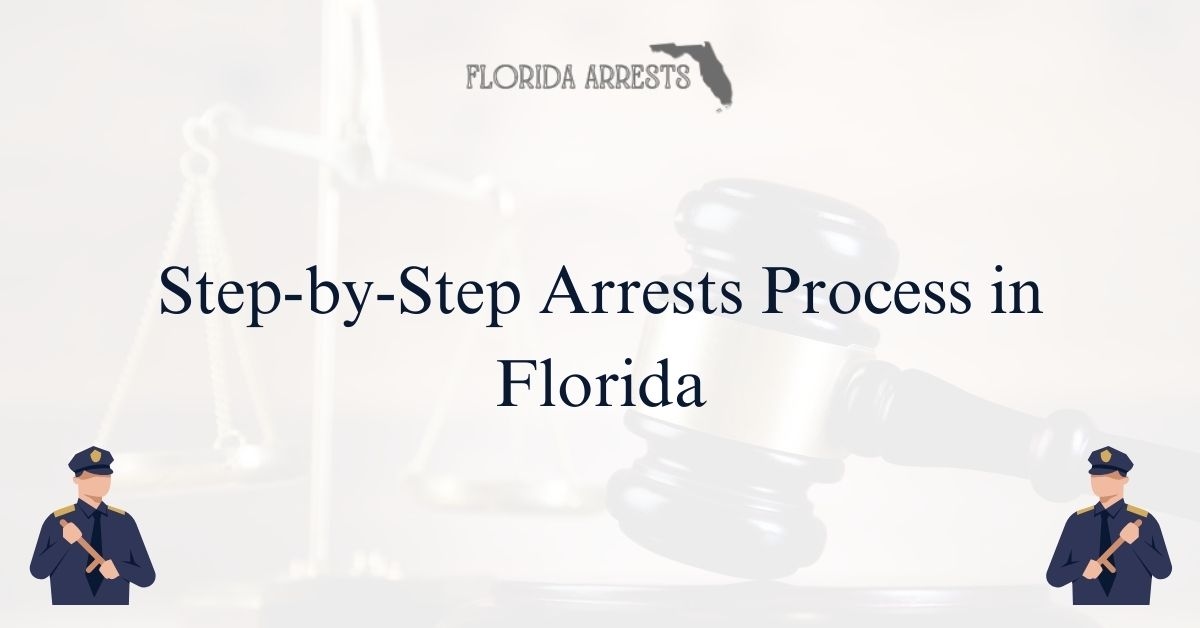Step-by-Step Arrests Process in Florida
The arrests process in Florida follows a structured series of steps to ensure that the rights of individuals are upheld during legal proceedings. Upon suspicion of a crime, law enforcement officers investigate the matter and gather evidence to support the arrest. Once the evidence is deemed sufficient, a warrant is issued for the individual’s arrest.
After being taken into custody, the individual is informed of the charges against them and their rights. They are then booked into the local jail, where personal belongings are confiscated, and a record of their information is documented. Following booking, the individual may have the opportunity to post bail or await a court hearing while in custody.
Florida Arrest Process: Key Steps
When a person is arrested in Florida, the process involves several important steps that must be followed in accordance with the law. Understanding the procedure of arrest and the rights of the individual is crucial for both law enforcement officials and the accused. This article will provide a detailed overview of the step-by-step arrests process in Florida, highlighting the key stages from investigation to bail posting or court hearing.
Investigation and Evidence Gathering
Before an arrest can be made, law enforcement officers in Florida must conduct a thorough investigation to gather evidence against the individual suspected of committing a crime. This includes collecting witness statements, analyzing physical evidence, and reviewing any digital information relevant to the case.
Issuance of Arrest Warrant
Once there is sufficient evidence to support an arrest, a warrant is issued by a judge in Florida. This document authorizes law enforcement to take the individual into custody and formally charge them with the alleged crime. The arrest warrant must specify the charges and provide details of the offense.
Informing Individual of Charges and Rights
When the individual is arrested in Florida, they must be informed of the charges against them and their legal rights. This includes the right to remain silent, the right to an attorney, and the right to a fair trial. It is important for law enforcement officials to ensure that the accused understands their rights before proceeding with the booking process.
Booking Process at Local Jail
After the arrest, the individual is taken to a local jail in Florida for the booking process. This involves recording their personal information, taking fingerprints and photographs, and conducting a search for any contraband. The accused will also be placed in a holding cell until further arrangements are made.
Confiscation of Personal Belongings
During the booking process, any personal belongings in the possession of the individual will be confiscated and stored by law enforcement officials in Florida. This is done to prevent the accused from having access to items that could be used to harm themselves or others, as well as to protect the integrity of the evidence in the case.
Documentation of Individual’s Information
As part of the arrests process in Florida, detailed documentation of the individual’s information is recorded in official police records. This includes their name, address, date of birth, physical description, and details of the alleged offense. These records are important for the legal proceedings that will follow the arrest.
Bail Posting or Court Hearing
After the booking process is complete, the accused may have the option to post bail to secure their release from custody in Florida. If bail is not posted, the individual will be scheduled for a court hearing where a judge will determine whether they will remain in custody or be released on bail pending trial. The court hearing is a critical stage in the arrests process and requires legal representation for the accused.
Frequently Asked Questions
Here you will find answers to commonly asked questions about the Step-by-Step Arrest Process in Florida.
What is the first step in the arrest process in Florida?
The first step in the arrest process in Florida typically involves law enforcement officers having probable cause to arrest an individual. This can occur through witness statements, physical evidence, or observation of a crime.
Can a person be arrested without a warrant in Florida?
Yes, in Florida, law enforcement officers can arrest an individual without a warrant if they have probable cause to believe that the person has committed a crime. However, there are certain exceptions and limitations to this rule.
What happens after an arrest in Florida?
After an arrest in Florida, the individual will be taken into police custody, where they will be processed and booked. This involves taking fingerprints, photographs, and personal information. The individual will then be held in jail until they can appear before a judge for a bail hearing.
How long can a person be held in jail before seeing a judge in Florida?
In Florida, a person who has been arrested must be brought before a judge within 24 hours of their arrest. This is known as the first appearance, where the judge will determine if there is enough evidence to continue holding the individual in custody.
What is the process for posting bail in Florida?
After the first appearance, if the judge determines that bail is appropriate, the individual or their loved ones can post bail to secure their release from jail. Bail can be paid in cash, through a bail bond agent, or other means approved by the court.
What are the potential outcomes of the arrest process in Florida?
After the arrest process in Florida, the case will proceed through the criminal justice system. Depending on the charges, evidence, and legal representation, the potential outcomes can range from dismissal of charges, plea bargains, trial, or conviction. It is crucial to seek legal advice and understand your rights throughout this process.







